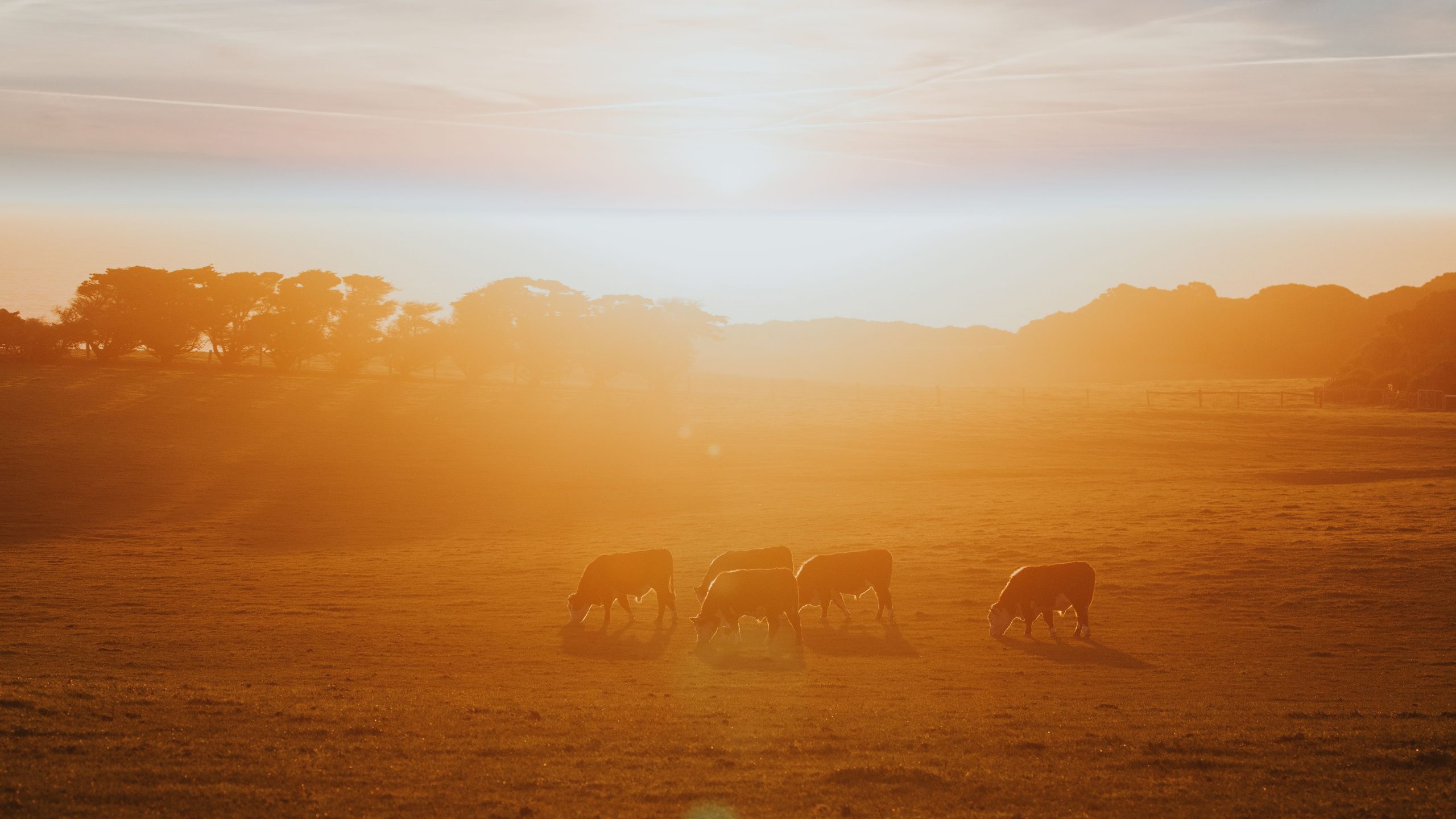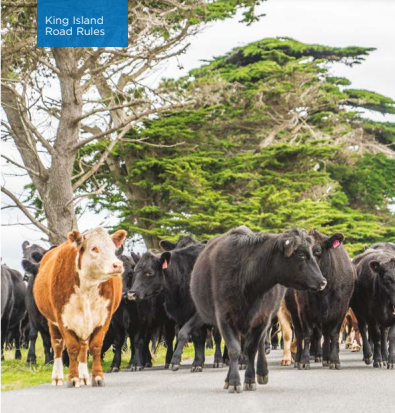AROUND the office they call him junior
It’s to save confusion between Peter Greenham and his son Peter, of course. Yet in no way is the younger subordinate to the older.
Peter Sr may have started working in the abattoir game in the 1950s, starting his own processing plant in Tongala in the Goulburn Valley in 1993 – the fifth generation of Greenhams to continue in the meat industry – but it is Peter Jr who has run with the company, now not only processing but marketing a premium beef brand.
Together the duo are a formidable team.
“Sure, he’s proud of me but I’m equally proud of him,” Peter, 36, said. “We each run two very different businesses. It’s changed a lot since he first started in 1993.”
Greenham is a multi-million dollar processing and export company with several complex arms.
In Tongala, Greenham processes about 700 dairy cows and bulls a day, drawing stock from a catchment of about 3000 farmers that extends from the Goulburn Valley to the Campaspe region and into the NSW Riverina. About 90 per cent of the annual 180,000 tonnage goes to the US hamburger market, with the rest sold domestically or to Asia.
While Peter Sr continues to run the Victorian operations, it is his son who is in charge of the company’s Tasmanian processing plant at Smithton, bought in 2001 after the previous owners went into liquidation.
In Tasmania, the Greenhams process 500 head of cattle a day from about 1000 farmers around Tasmania, including King Island, which adds up to 150,000 tonnes annually.
But it is the marketing that stands the Tasmanian business apart, with three key brands: Cape Grim Beef; Greenham Tasmania Natural Beef and Pure Black Natural Angus.
Cattle are graded according to Meat Standards Australia on the kill floor and then distributed into those brands according to their quality.
Peter said MSA standards were in the process of changing.
Cape Grim cuts are from British breeds, grassfed, hormone and antibiotic free, and according to the old MSA system from the top four boning grades, which includes a marbling of 2+, a carcass weight over 240kg dressed weight aged between 18-36 months, and with a meat colour 1B-3.
Anything below the top four boning grades – (there were 18 grades in the old system) – goes into the Greenham Tasmania Natural Beef brand.
The Pure Black Natural Angus are also from the top four boning groups but the focus is purely on the Angus breeds.
Peter said under the new MSA system, which grades from zero to 100 on eating quality rather than boning, their top meat would fall into the 65 out of 100 category, (with 75 the highest).
“It sounds like we’re only just passing and it was easier to say we’re in the top four of 18,” he said. “But we’re happy the new system is being introduced. It’s now more accurate. Each plant can optimise the system to their cattle type.”
He said the new MSA optimised system was only relevant to processors, with all their marketing now referring to MSA’s five, four and three star meat categories.
Cape Grim tenderloins, for instance, are marketed as five star, while striploins and cube rolls are four star.
Peter said that the brands came about after they introduced MSA grading in 2007, with Cape Grim and Greenham Natural introduced that year, to be followed by the Angus brand.
He said the kickstart for Cape Grim came from celebrity chef and restaurateur Neil Perry.
“He was a real catalyst for us developing the Cape Grim brand. He was looking for a grassfed beef and someone told him about us.
“He still gets two to three pallets every Monday morning, and still the best animals at 36 months old.
“Once he’d approached us, we became one of the first in Australia to promote a premium grassfed brand.”
While several of Greenham’s farmers live in the Cape Grim area, the name was chosen because it has the cleanest air in the world.
Today the Cape Grim brand makes up about 20 per cent of Greenham’s business, at about 30 tonnes a week in up to a dozen cuts. The domestic market forms the majority of sales, followed by the US and Korea, as well as such niche markets as the Maldives and Thailand.
Peter said the Greenham Tasmania Natural Beef label – sold to butchers and wholesalers – was created to differentiate from the Cape Grim premium brand.
Pure Black Natural Angus was launched three years ago on the back of the new popularity of Angus.
With 80 per cent of cattle supplied to Greenhams being Angus, Peter said it was a “no-brainer” to launch a new brand.
“The Angus breed have done a good job in marketing and it’s now considered a premium brand which people are willing to pay good prices for.”
Beyond these three brands, the Tasmanian operation also processes for the likes of Robbins Island Wagyu, as well as lower grade, unbranded beef.
The abattoir has contracts with farmers at certain times of the year, but generally cattle are bought on the open market.
All farmers who contribute to the Cape Grim brand are audited each year to ensure they are following the grassfed and no hormone or antibiotic promise.
The company has recently introduced a QR code, which customers can scan using a mobile phone app and see which farmer supplied their beef.
“It’s trying to put a face to the Cape Grim name. It’s not Greenham beef, it’s the producers’ beef and it also helps give a restaurant a point of difference so their menu can promote the grower and trace the beef back to the farm gate.”
Peter, who studied mechanical engineering, said his father handed him the keys to Tasmania in 2002. While senior kept a close eye on the operations, he effectively left junior free rein.
“Dad really wanted to get me out from under his feet. I couldn’t do much at Tongala because he’d built it from scratch. We would have probably ended up clashing,” said Peter, whose sister Lucy has done the graphic designs for the business.
“So he sent me to Tasmania. He wanted me to get my teeth into it from scratch, to build it the way I wanted to while he still had an overview of the whole operations.
“It turned out that marketing better quality beef suited my personality and my enthusiasm.”
Peter said while Tasmania’s operation is complex, the company’s success was based on the keep-it-simple principle.
“Do the things you do well and don’t try and diversify too much. We don’t swap and change customers and markets too much.
“It’s not always about top dollar, but loyalty to the customer.”
Peter is marrying in May, to a fiance who works for Meat and Livestock Australia, and hopes to have the next generation of Greenhams in the business.
“It’s such an interesting, dynamic industry to be in. You buy one thing and turn it into 50 different things … it’s never dull.”














